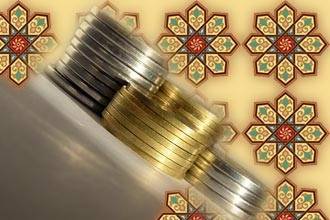 Business & Finance Club - Manama : Bahrain, the Middle Eastern country with the largest number of Islamic banks, aims to grab a greater share of sukuk trading from the U.K., Dubai and Malaysia with a bourse dedicated to securities that adhere to Shariah law.
The Bahrain Financial Exchange, scheduled to open in October, will start trading in Islamic debt next year, Chief Executive Officer Arshad Khan said. Eight sukuk valued at about $2.9 billion trade on the existing Bahrain Stock Exchange, compared with 20 at a face amount of $16 billion listed on Nasdaq Dubai, data on exchange websites show. The London Stock Exchange has attracted $17.7 billion from 26 securities.
Issuers are favoring the most-active markets to ensure investors can trade their securities, with General Electric Capital Corp., the world’s biggest non-bank finance company, listing $500 million of Shariah-compliant debt sold in November in Malaysia, London and Dubai.
“We are quite hopeful that we’ll see a very liquid secondary market in sukuk, which does not exist right now, whether in London or anywhere else,” Khan said in an interview on July 15 from the capital city, Manama.
The smallest oil producer among Gulf Arab states is using money from the Gulf’s energy boom to establish an exchange that would allow investors to list Islamic bonds, real-estate investment trusts, exchange-traded funds and options. It will also create an electronic platform this year that will allow banks and companies to buy and sell commodities used to back so- called Murabahah transactions, Khan said.
Debt, Commodities
Sukuk are typically backed by assets and pay profit rates instead of interest which is prohibited under Shariah principles. A Murabahah contract is a sale and deferred-payment accord based on an asset, usually a commodity such as oil, sugar or metals, in which the cost and profit margin are pre-agreed.
Malaysia last year introduced an online trading platform for Murabahah transactions. Hong Kong, Singapore and the U.K. are easing rules on Islamic banks and products to woo investors from the Middle East. Dubai responded by starting Nasdaq Dubai, previously known as the Dubai International Financial Exchange, in 2005 as the Gulf’s first bourse open to investors and issuers of any nationality.
Bahrain is “trying to sustain a niche, which has traditionally been in the area of Islamic finance,” said Riyadh-based John Sfakianakis, chief economist at Banque Saudi Fransi. “Islamic banking is under a lot of competition from the regional competitors such as Dubai, Qatar, Kuwait and Saudi Arabia.”
Yields Decline
The yield on Bahrain’s 6.247 percent dollar-denominated Islamic bonds maturing in June 2014 dropped 6 basis points from a week ago to 3.45 percent, and has fallen 115.5 basis points from the year high on Feb. 15, according to data compiled by Bloomberg.
The yield on Malaysia’s 3.928 percent Islamic note due June 2015 rose one basis point to 3.2 percent, after declining 23 basis points last week, prices from Royal Bank of Scotland Group Plc show.
Islamic securities returned 7 percent this year, according to the HSBC/NASDAQ Dubai US Dollar Sukuk Index. Debt in developing markets gained 7.7 percent over the same period, according to JP Morgan Chase & Co.’s EMBI Global Diversified Index.
Bahrain, the smallest of the six Gulf Cooperation Council states, is bidding to increase its share of the industry, estimated by the Kuala Lumpur-based Islamic Financial Services Board to almost triple to $2.8 trillion in assets by 2015.
Economic Recovery
Central bank Governor Rasheed al-Maraj said on May 4 the economy may expand 4 percent this year. Economic growth slowed to 3.1 percent in 2009 as Bahrain halted about $13 billion of projects as the global financial crisis sapped demand for real estate and prices fell across the Gulf.
Bahrain has “dwindling hydrocarbon reserves and it needs to diversify very fast,” to maintain a role as a regional financial hub, Sfakianakis said. The nation’s crude oil production dropped 0.5 percent to 66.5 million barrels last year as reserves declined, the central bank said on June 20.
The recovery of the financial industry, which contributes about a quarter of the country’s gross domestic product, may be slow as low property prices weigh on lending, Bahrain’s Economic Development Board said in its annual report yesterday.
There were 27 Islamic banks registered in Bahrain as of June, and eight in the United Arab Emirates, according to data on the central banks’ websites. Malaysia, the Islamic finance hub in Asia, has 18 Islamic banks.
“We will get a lot of interest from the region and the London market,” Bahrain Financial Exchange’s Khan said. “In the Gulf Arab region, companies are using the London market to do their business, so of course when we set up the Murabahah platform this year it will attract them from London.” |